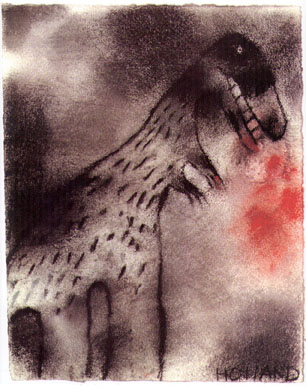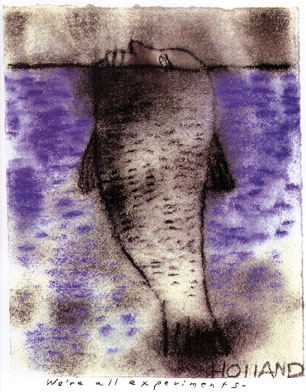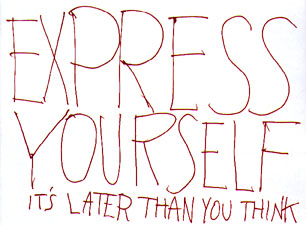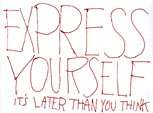|
|
|
|
The Avant-Garde: Over a hundred years ago, some French bohemians decreed the purpose of art was to shock the middle classes. It may have been a great idea back then. But these days, the middle classes aren't paying attention. They're all on Jerry Springer or Ricki Lake talking about their cross dressing experiences or sex with the baby-sitter. It's the cutting-edge artists who have to watch in silence and eat their hearts out, complaining about the state of American culture, and demanding even more grant money for more cutting-edge art. In the future, this spectacle of the middle classes shocking the avant-garde will probably become the textbook definition of Postmodernism. |
|
|
The Left Brain Doesn't Know What the Right Brain is Doing": It's my guess that those cutting-edge artists who attack tradition secretly believe tradition will survive to enshrine them as the wild and crazy geniuses who destroyed it. "Sometimes you Gotta Break the Rules": One of the things not enough people appreciate about Modern Art is that it's philosophy can be summed up as a Burger King commercial. |
|
Why artists behave like crocodiles. |
Craftsmanship: In traditional art, craftsmen worked within certain conventions. Occasionally those conventions would be redefined by acts of genius. In modern art, everybody has to redefine art all the time. This might have made our era another Renaissance, if suddenly there had been an explosion of geniuses in the world. But since ego is more common that genius, Postmodern art is destined to be narcissistic. Art Theory: Self-Expression: |
| The Miracle of Authenticity: The faith that if we're all authentic and express ourselves, society will benefit. A charming ideal, but it overlooks the obvious. There are a lot of authentic jerks and idiots in the world. Encouraging them to express themselves will never do anybody much good, much less society. |





